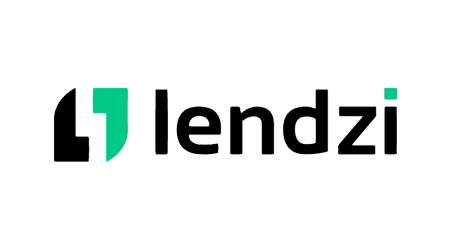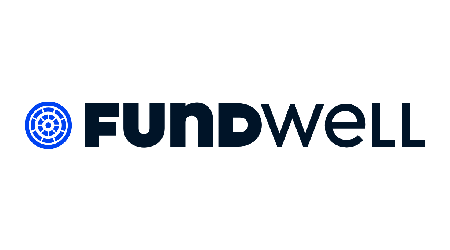Whether you need a revolving line of credit or a long-term business loan, $60,000 loans come in many forms. You generally need to be in business for at least six months, have any required documentation and a minimum monthly revenue starting at $5,000 to $10,000. We’ll help you compare the types of loans available to you so you can start shopping lenders to get the best deal for your situation.
Where to get a $60,000 business loan
You can find $60,000 business loans from banks, online lenders, credit unions and community development financial institutions (CDFIs). Funding can come in the form of SBA loans, equipment financing, business lines of credit, term loans and others.
Established businesses might find more competitive rates at a large national bank. However, newer businesses might have better luck with an online lender, business loans marketplace or an SBA loan specialist offering SBA 7(a), Express or 504 loans.
Compare $60,000 business loans
Compare these lenders that offer $60K business loans. Select Go to site to begin your application, or visit our review page by choosing More info.
Compare other products
We currently don't have that product, but here are others to consider:
How we picked theseWhat is the Finder Score?
The Finder Score crunches 12+ types of business loans across 35+ lenders. It takes into account the product's interest rate, fees and features, as well as the type of loan eg investor, variable, fixed rate - this gives you a simple score out of 10.
To provide a Score, we compare like-for-like loans. So if you're comparing the best business loans for startups loans, you can see how each business loan stacks up against other business loans with the same borrower type, rate type and repayment type.
How to get a $60,000 business loan?
The application process for a $60,000 loan varies by lender but generally involves the following steps:
- Determine the type of loan you need. Whether it’s a term loan for one-time costs or a line of credit for ongoing expenses, decide which type of loan makes the most sense for your business needs.
- Compare lenders offering $60,000 loans. Consider factors such as APR, terms and funding speed.
- Check your eligibility. This may involve filling out an online form for online lenders or contacting a bank directly.
- Gather the required documents. These documents can include personal and business tax returns, profit and loss statements, bank statements or other documentation.
- Fill out the application. Completing the application can take a few minutes to over an hour, depending on the lender and loan type.
- Read and sign the contract. Review your final offer, making sure the rates, terms and monthly payments fit your business’s budget. If you agree, sign and submit your contract.
The turnaround time for $60,000 loans is typically shorter than larger loans, with some lenders offering funding within a few business days to a week. Some loans, such as SBA loans, can take much longer.
How to qualify for a $60,000 business loan
While a $60,000 business loan is relatively small in the business loans market, it may still be difficult to qualify if you just started your business.
To qualify for a loan of this size, you typically need:
- At least six months in business. Many lenders require you to be in business for at least six months to two years to qualify.
- Minimum monthly revenue. A general rule of thumb is that lenders loan you 10% to 30% of your annual revenue.
- Good personal credit. Banks typically require a personal credit score of 670 or higher, while online lenders may go as low as 520 for short-term financing like MCAs. And for invoice financing or factoring, your credit score may not factor in at all.
- A personal guarantee. The lender may also ask you for a personal guarantee, especially for unsecured loans not backed by business assets.
- A business plan. A business plan shows your lender how you’ll be bringing in revenue, but not all lenders will require a business plan.
How much does a $60,000 business loan cost?
Expect competitive rates for a $60,000 business loan if you have strong credit and business financials. However, costs vary depending on the loan type. For example, a traditional bank term loan might start with rates as low as 7% to 8%, while SBA loan rates are capped at the prime rate plus 3% for 7(a) loans.
For shorter-term financing like merchant cash advances and lines of credit, APRs can run much higher — typically starting around 10% for borrowers with the best credit and exceeding 60% APR for borrowers with lower credit scores.
Use our business loan calculator to compare monthly loan payments and how much your loan might cost based on different rates and terms.
Business loan calculator
See how much you'll pay|
Your loan
|
|---|
| Loan amount |
|
$
|
| Loan terms (in years) |
|
|
| Interest rate |
|
%
|
Fill out the form and click on “Calculate” to see your estimated monthly payment.
or
Compare more lendersBased on your loan terms
| Principal | $ |
|---|---|
| Interest | $ |
| Total Cost | $ |
How do payments on a $60,000 loan work?
It depends on the terms you’ve agreed to with your lender. Most $60,000 loans are term loans with fixed monthly repayments. Some short-term business loans come with biweekly, weekly or even daily repayments.
If you apply for a merchant cash advance, you’ll repay your loan with a percentage of your business’s daily sales. If you get an advance on your unpaid invoice with invoice factoring, you won’t repay the factoring company — you just won’t get your invoice’s total value.
8 types of business loans
Business loans for $60K can cover a wide range of financing needs. Here’s a list of the most common types and when they make sense.
Term loans
Term loans are one of the most common types of business loans and are offered by traditional banks and online lenders. There are long-term and short-term options, although a $60K business loan likely has a shorter term of three years or less. Funds are disbursed in a lump sum, and you’ll pay it back in equal installments at a fixed interest rate.
Consider if you…
- Want a lump sum loan
- Have a specific expense in mind
- Have healthy revenue and credit
Consider other options if you…
- Aren’t sure how much you need to borrow
- Have ongoing financial needs
- Don’t meet credit or revenue requirements
Business lines of credit
A business line of credit (LOC) is more flexible than a term loan, and you only pay interest on the funds you use. It works sort of like a credit card, where you can draw on it as needed up to your approved limit. And the credit limit replenishes as you pay it back. Business LOCs can act as an emergency fund, cover temporary cash flow shortages or finance an ongoing project, but terms are generally short and they may come with a number of fees.
Consider if you…
- Have ongoing financing needs
- Need an emergency fund
- Are looking for short-term funding
Consider other options if you…
- Need a lump sum loan
- Know exactly how much you need to borrow
- Don’t need access to renewable financing
SBA Loans
Backed by the federal government, SBA loans are less risky for the lender but can be difficult to qualify for. They’re offered by banks, credit unions and online lenders, and loan amounts can reach as high as $5 million or more. SBA loans generally have very competitive rates, but some require a down payment, and the loan process can take weeks or even months.
Consider if you…
- Meet SBA requirements
- Don’t qualify for other financing
- Don’t need fast funding
Consider other options if you…
- Don’t meet SBA requirements
- Qualify for other funding
- Need fast funding
Equipment loans
A type of secured loan, equipment financing can be used to buy vehicles, machinery, office furniture or any other kind of equipment. The purchase acts as collateral for the loan, which means you may qualify for a lower rate than with other business loans. But, depending on the lender, you may need to come up with a down payment. Plus, as with any secured loan, you risk losing the asset if you can’t make the payments.
Consider if you…
- Need to purchase equipment
- Have cash for a down payment, if required
- Are looking for a lower interest rate
Consider other options if you…
- Don’t have equipment needs
- Prefer an unsecured loan
- Don’t have money for a down payment
Merchant cash advances
If your business does a lot of credit card sales — such as retailers and ecommerce companies — a merchant cash advance (MCA) is a way to get business financing based on your future sales. How much of an advance you can get depends on your monthly revenues. MCAs typically offer fast funding, but it’s one of the most expensive forms of business financing and you may have to make weekly or even daily repayments.
Consider if you…
- Do a lot of card sales
- Need fast funding
- Don’t qualify for less expensive funding
Consider other options if you…
- Qualify for cheaper financing
- Don’t have a lot of card sales
- Don’t need fast access to cash
Invoice factoring
For companies that invoice other businesses or government agencies, invoice factoring is a way to leverage your unpaid invoices in exchange for cash. You sell your outstanding invoices to a factoring company for less than they’re worth. As your customers pay the factoring company, you’ll receive the remaining balance of the invoices minus fees. It’s a fast form of funding, and there aren’t any loan payments to manage, but its fees can be steep and it’s not suitable for all businesses.
Consider if you…
- Invoice your customers
- Have qualified invoices
- Need fast funding
Consider other options if you…
- Aren’t a business-to-business (B2B) company
- Qualify for less expensive financing
- Don’t have enough qualified invoices
Invoice financing
Invoice financing is similar to invoice factoring, except you don’t sell your invoices to a factoring company. Instead, you take out a loan based on a percentage of your unpaid invoices and repay it as your customers settle their invoices. But, while invoice financing offers fast funding and lenient requirements to qualify, it’s expensive and can cost more if your customers make late payments.
Consider if you…
- Are a B2B company
- Have enough qualified invoices
- Need fast funding
Consider other options if you…
- Qualify for cheaper business funding
- Aren’t a B2B company
- Want to maintain control of your invoices
Personal loans for business
If you’re a startup or don’t meet business loan requirements, you may want to consider using a personal loan for business expenses. Personal loans are easier to qualify for than business loans, and they’re typically unsecured, which means you don’t have to put any business assets at risk. But you’ll need a good credit score to qualify for the best rates, and most personal loan providers cap loans at $50,000, so you may have to dig a little deeper to find a $60K loan.
Consider if you…
- Don’t qualify for business loans
- Have good credit
- Want a longer term
Consider other options if you…
- Meet business loan requirements
- Need a larger loan amount
- Don’t qualify for a decent APR
Compare $60,000 personal loans for business
Consider these lenders that offer $60,000 personal loans that could be used to fund your business. Select Compare for up to four providers to see how their APRs, credit score requirements and loan amounts stack up. Select Go to site to get started on your application.
Compare other products
We currently don't have that product, but here are others to consider:
How we picked theseWhat is the Finder Score?
The Finder Score crunches 6+ types of personal loans across 50+ lenders. It takes into account the product's interest rate, fees and features, as well as the type of loan eg investor, variable, fixed rate - this gives you a simple score out of 10.
Secured vs. unsecured business loans for $60,000
Secured business loans require collateral, while unsecured loans don’t. For a $60,000 loan, a secured loan may be easier to qualify for, especially for borrowers with lower credit scores. But you’ll need an asset that can back the loan, which typically needs to be appraised.
Unsecured loans don’t require collateral but may require a personal guarantee. And they typically come with higher rates and fees to make up for the added risk to the lender.
How to get a $60,000 business loan with bad credit
If you have bad credit, you may be able to get a $60,000 business loan from online lenders, credit unions, CDFIs or even some community banks. Be sure to check out the lender’s credit requirements before you apply to make sure they accept your credit rating.
You may also be able to qualify with a lender that specializes in business loans for bad credit. Or, you might offer to secure the loan with collateral.
For certain types of loans, like merchant cash advances, lenders may not consider your credit score at all — or at least not weigh it as heavily. But these can be expensive and should generally only be considered as a short-term solution.
Bottom line
To get a $60,000 business loan, you’ll need to meet revenue requirements, have at least six months in business and a good credit profile, though this amount may be easier to qualify for compared to a larger amount. Compare top business lenders to find the right loan for your situation.
Frequently asked questions
Can I get a $60,000 SBA loan?
Yes, you can opt for a $60,000 SBA loan. These loans offer low rates and higher amounts to business owners who struggle to qualify with other lenders. But the process is very competitive, it can be lengthy compared to other loan options and many applicants don’t walk away with an approved loan.
Can I get a $60,000 loan with bad credit?
It is possible to find a $60,000 business loan with bad credit if you apply for a merchant cash advance or invoice financing — but you’ll need the revenue or unpaid invoices to support this loan amount. However, prepare to pay more in fees and interest if you get a bad credit business loan.
Can I get a loan for $60,000 to start a business?
Lenders such as online lenders and SBA lenders may be open to working with startups seeking this amount.
However, because it can be hard to qualify for an SBA loan, some entrepreneurs use their own savings or take out a personal loan to launch a new enterprise. Personal loans don’t have business revenue or time-in-business requirements, making them ideal for startups — if the lender allows the funds to be used this way.
Other business loan amounts:
Ask a question
More guides on Finder
-
8 Best Commercial Truck Loans (2026)
Best financing options for trucking companies to cover licensing, new trucks, insurance, vehicle maintenance and more.
-
Fundera Review: Fast Funding Up to $5M for Small Businesses (2026)
Get connected with short-term funding, SBA loans, lines of credit and more.
-
$50K No-Doc Business Loans: Fast Funding, Apply Today (2026)
Compare $50,000 no-doc business loans for an expedited lending process.
-
How to Get a $5,000 Business Loan (2026)
Compare $5,000 business loans and what you need to qualify.
-
How to Get a $400,000 Business Loan in 2026
Compare different lenders to secure a $400,000 business loan with favorable terms.
-
Compare $40,000 business loans (2026)
Find a $40,000 business loan for your business and calculate the cost before you apply.
-
How to Get a $10 Million Business Loan in 2026
Buy real estate, another business or expand your enterprise.
-
How to Get a $3 Million Business Loan in 2026
You’ll have an easier time qualifying if you have strong credit and high revenue.
-
How to Get a $5 Million Business Loan in 2026
Find financing to grow your business — or even buy another.
-
Compare $10,000 Business Loans in 2026
Stay away from big banks for a loan of this size.




